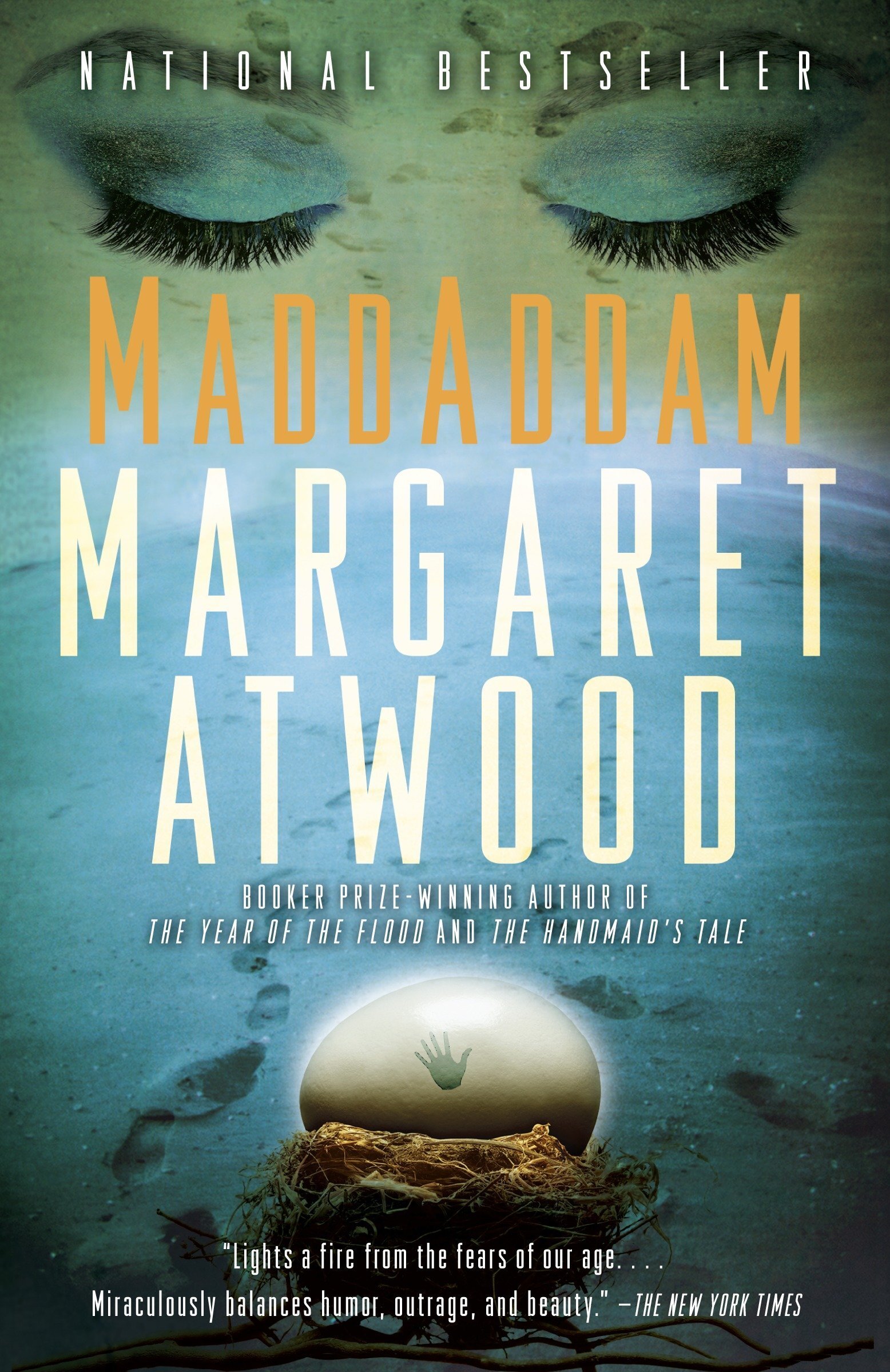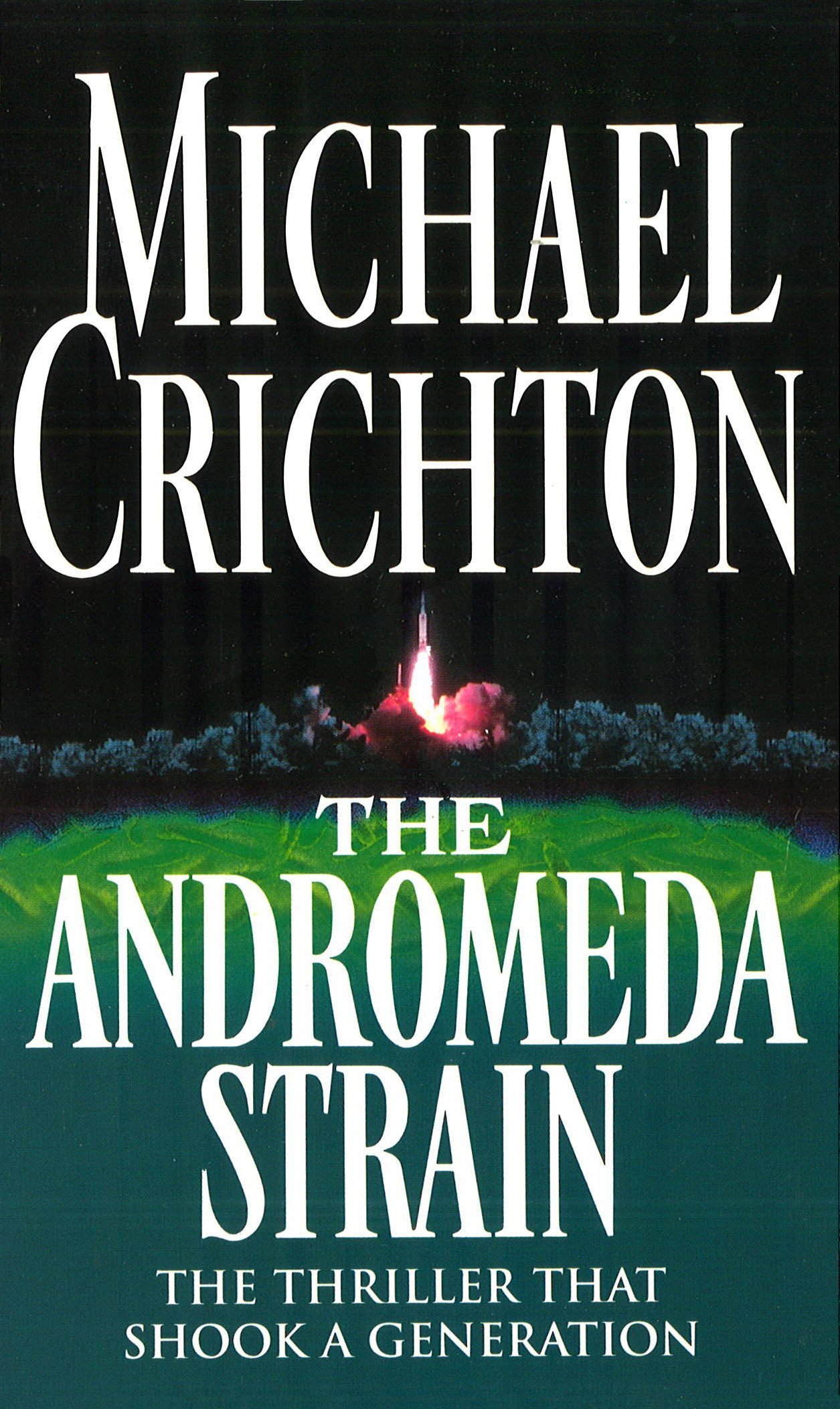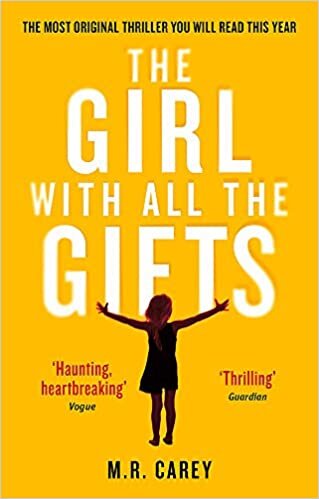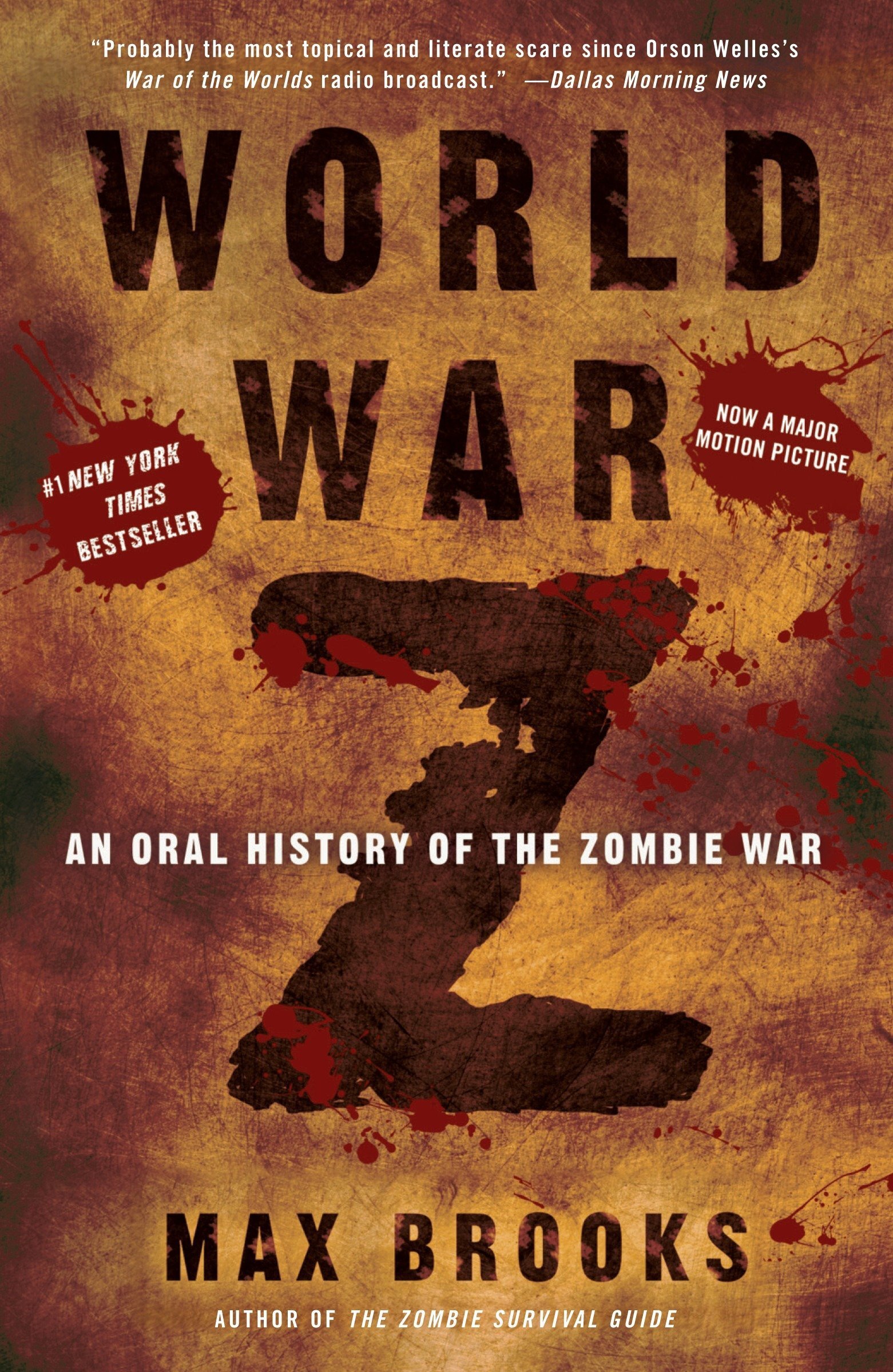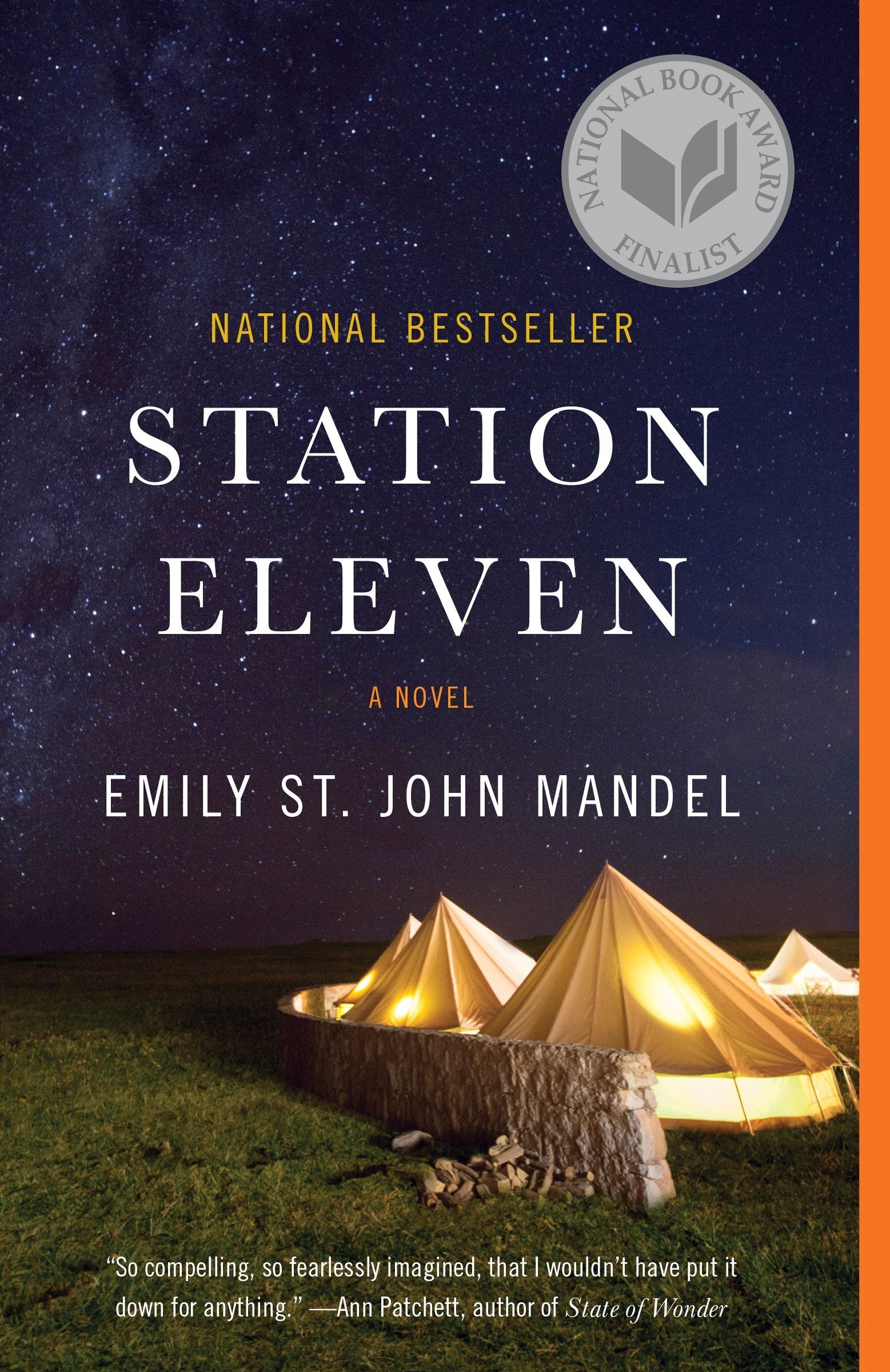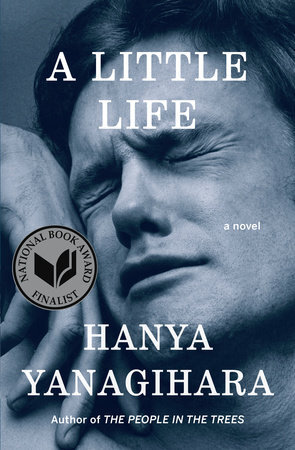"Dystopian Distractions: Apocalyptic Fiction to Read in Self-Isolation"
by Joelle Boland
I had a writing professor in college who liked to say, “The greatest gift we can give each other is the gift of time.” If that’s right, I would like to thank COVID-19 for rendering my former job useless, and my former employer for freeing me from the bonds of employment. I know millions of others find themselves in a similar situation right now: faced with the priceless gift of unlimited spare time due to sudden and unexpected joblessness. I don’t know how everyone else is spending their new abundance of time, but I have chosen to spend mine reading books about the end of the world.
I started on this apocalyptic reading binge as a joke, a funny story to tell at parties, whenever we’re allowed to have those again. But something about it has felt surprisingly satisfying. It’s felt right. Reading these books hasn’t added to my stress. Instead, I’ve found that they fit like keys in the lock of my anxious mind. There’s a dissonance between my experience of how mundane daily life is, right now, in self-isolation, and my knowledge that New York City hospitals are a war zone, and that people all around the world are afraid, their lives on hold. Pretty much the only thing I can do is stay indoors, to eliminate the risk of getting sick or getting other people sick. But I’m bored. More than that, I’m guilty for even having the luxury of ennui.
I don’t think there’s anything I could read right now that would make me forget about the Coronavirus. Any escape into fantasyland would be tinged with guilt and dread. So here are some of the books that have kept me occupied in isolation, and have helped me forget about this mess we’re in, by immersing my imagination in even bigger, scarier messes: escapist fiction that whisks you away to someplace worse.
THE MADDADDAM TRILOGY, Margaret Atwood
While she’s probably known better for her dystopian masterpiece The Handmaid’s Tale (1985), I found Atwood’s MaddAddam series more fitting for this pandemic. The trilogy includes Oryx and Crake (2003), The Year of the Flood (2009), and MaddAddam (2013). Few human survivors remain after a mysterious plague sweeps the planet. Those survivors include a small science experiment of supposedly perfect, genetically engineered new humanoids (“Crakers”). The narrative switches between the new, sparsely populated planet and the years leading up to the “dry flood.” Even before the plague, we discover, society was rapidly falling apart, due to global warming, overpopulation, and the unchecked avarice of pharmaceutical companies.
I’d highly recommend reading all three installments of this trilogy back to back. The storylines of all three books tie together in a very satisfying way. At times I found myself skeptical, thinking how unlikely it was that these characters would not only survive but keep running into each other on such a big, empty Earth. But at times like this, I like to recall the wise words of my mother: “Shush! It’s a movie.” Her sage advice got me to shut my mouth, suspend my disbelief, and stop criticizing whatever we happened to be watching. Atwood’s apocalyptic trilogy might not meet the high scientific standards of the average sci-fi nerd, but if you can suspend your disbelief enough to put yourself in the world of the Crakers, these books are thoroughly enjoyable.
THE ANDROMEDA STRAIN, Michael Crichton
Now that daily news updates about the Coronavirus have made us all armchair epidemiologists, it’s the perfect time to crack open this 1969 novel about a killer space microbe. A military satellite lands in a remote part of Arizona, carrying in it a deadly microscopic stowaway. Four scientists are rushed to a top secret underground lab to research the nature of the mystery microorganism. Above ground, containment of the crash site goes disastrously wrong, leaving the reader wondering if this is a book about survival, or one about extinction.
In most movies, scientific breakthroughs are condensed into two-minute montages, with a disheveled but handsome scientist slowly removing his fake glasses afterwards and saying “My God…” once he’s figured it all out. This book takes a much closer look at the grueling tedium of scientific exploration, the painstaking testing and re-testing of hypotheses. Andromeda Strain has been filed under the genre of techno-thriller, and parts of it verge on thrilling. But every time it gets your adrenaline going, there’s a pause in the action and a long winded explanation of the history of the electron microscope, or some other fascinating (but dry) factoid. In the end, this book is not one about survival or extinction: it is one about Michael Crichton telling you all about his vast knowledge of scientific inquiry.
THE GIRL WITH ALL THE GIFTS, M.R. Carey
If you’ve seen the 2016 movie version of this 2014 book, then all the best plot twists won’t be a surprise to you, but it’s still an engaging read. The story starts out in a classroom, but don’t let that lull you into a false sense of PG-13 safety, as it did me. There’s plenty of flying viscera and rending of flesh later on. The story begins on a remote army base in England, in a world that has been almost entirely overrun by zombies (or “Hungries” as this book infuriatingly calls them). A classic monster book, The Girl with All the Gifts explores what it means to survive, and what’s lost in the process.
Of all the end of the world fiction I’ve read recently, I’d say this one shook my serenity the most. While it’s the most removed from our current reality, it did have me wondering what I would do if my roommate tried to tackle and eat me in the dead of night. Would I have it in me to bash his zombie brains in with a lamp? Possibly. Would I have the upper body strength? Definitely not. Overall, an easy, entertaining, and distracting read.
WORLD WAR Z, Max Brooks
This 2006 book is less of a novel and more of a hodgepodge collection of fictitious interviews conducted after humans have waged war against and vanquished the undead hordes. The first interview is with the doctor who discovered patient zero of the mysterious plague; the story unfolds from there, following the progress of the zombie pandemic as it sweeps the planet. From the point of view of survivors from all parts of the globe, this book gives a cautionary tale of the high cost of governmental ineptitude and corporate greed in times of crisis.
Most of the zombie stories I’ve seen are told on a micro scale: a small band of survivors scrounges for canned goods in the ashes of civilization. Brooks’ imagining of the zombie apocalypse, where enough people survive to mobilize and fight back, was a refreshing change of pace. It was a bit of a slog to read, though, because he spent so much time diving into the minutiae of the battle strategies and technology of the great Zombie War. I believe this book is a book for Dads, people with half-made model airplanes in the garage, people who read thick tomes of World War II trivia before bed each night. While I was bored by the long passages detailing the logistics and machinery of warfare, I know some people might find those things fascinating. Like my dad. And my brother, who is now also a dad.
STATION ELEVEN, Emily St. John Mandel
A traveling theater troupe brings Shakespeare and music to the few scattered survivors of a deadly flu pandemic that ended civilization as we know it. Mandel describes the logistics of the pandemic fleetingly, but with nightmarish realism. The book begins just before the plague, with the on-stage death of one of the main characters of the book, aging actor Arthur Leander, performing the titular role in a stage production of King Lear. His death is described beautifully, with unflinching attention to detail. At the end of that chapter I felt a vertiginous thrill of fear; this author had me reading wide-eyed, with bated breath, about the loss of a single character, and she was about to kill off billions of people.
But this 2014 book is about much more than death and post-apocalyptic survival. It’s about art, money, fame, love, and anything else we chase to give our lives meaning. As horrifying as Mandel’s flashbacks to the flu-driven downfall of civilization are, they’re not the most memorable parts of the book. The lines that really knock the wind out of you and stick in your mind are ones like “Hell is the absence of the people you long for,” one of the book’s many plays on Sartre’s original sentiment that “Hell is other people.” Station Eleven is a riveting page-turner and a wonderfully crafted novel. Anytime would be the perfect time to read it.
A LITTLE LIFE, Hanya Yanagihara
A Little Life (2015) is by far the most apocalyptic book I’ve ever read. After I finished it I found myself frantically reaching out to friends until I found someone else who had read it, so we could Process, with a capital ‘P,’ over the phone. One friend confessed to feeling like a “burn victim” after finishing the book, every nerve ending exposed. This time of isolation is the perfect opportunity to read this book, because it will make you ugly cry, and if you’re like me, you’d prefer to do that in the privacy of your own home.
The book tells the life story of four college friends as they try to establish themselves in their chosen careers in New York City. The author slowly—one might even say sadistically—reveals more and more of the past of one of the friends, a past of unbelievable trauma. As much as I may have cursed Yanagihara’s name for making me fall in love with these characters in the first place, only to make me bear witness to so much trauma and grief, I’m grateful for the experience. A Little Life broke my heart open. It gave me a deeper appreciation for my chosen family, and for the simple pleasures of cooking for my friends, going for walks, and being held.
Joelle Boland is a writer, dog walker, and reader for Epiphany who lives in Brooklyn. When they aren't roaming the streets of Brooklyn with dogs, you can probably find them riding the Q train back and forth across the Manhattan Bridge, rereading the Harry Potter series on a Kindle, to hide the fact that they still read children's books.




